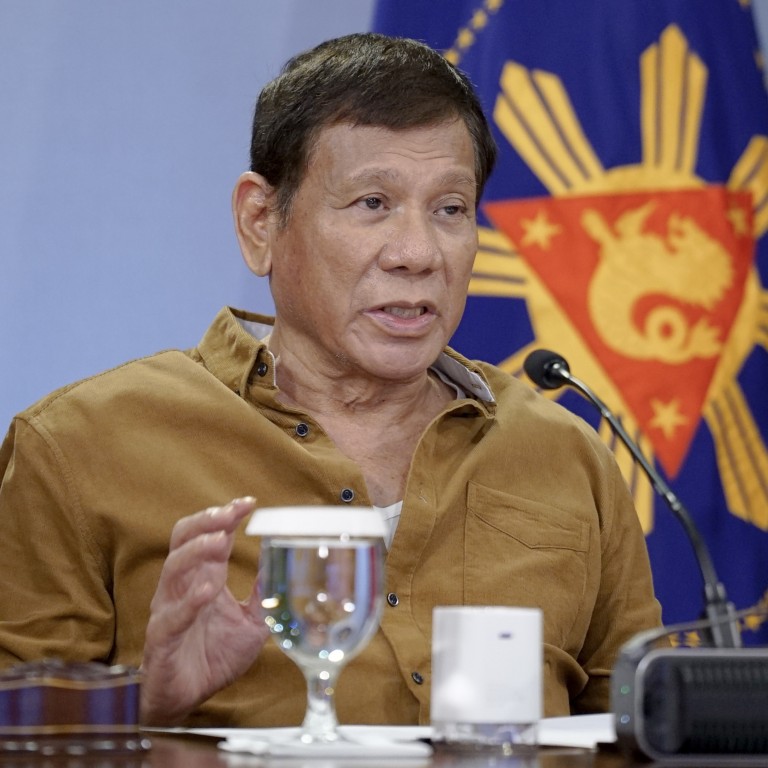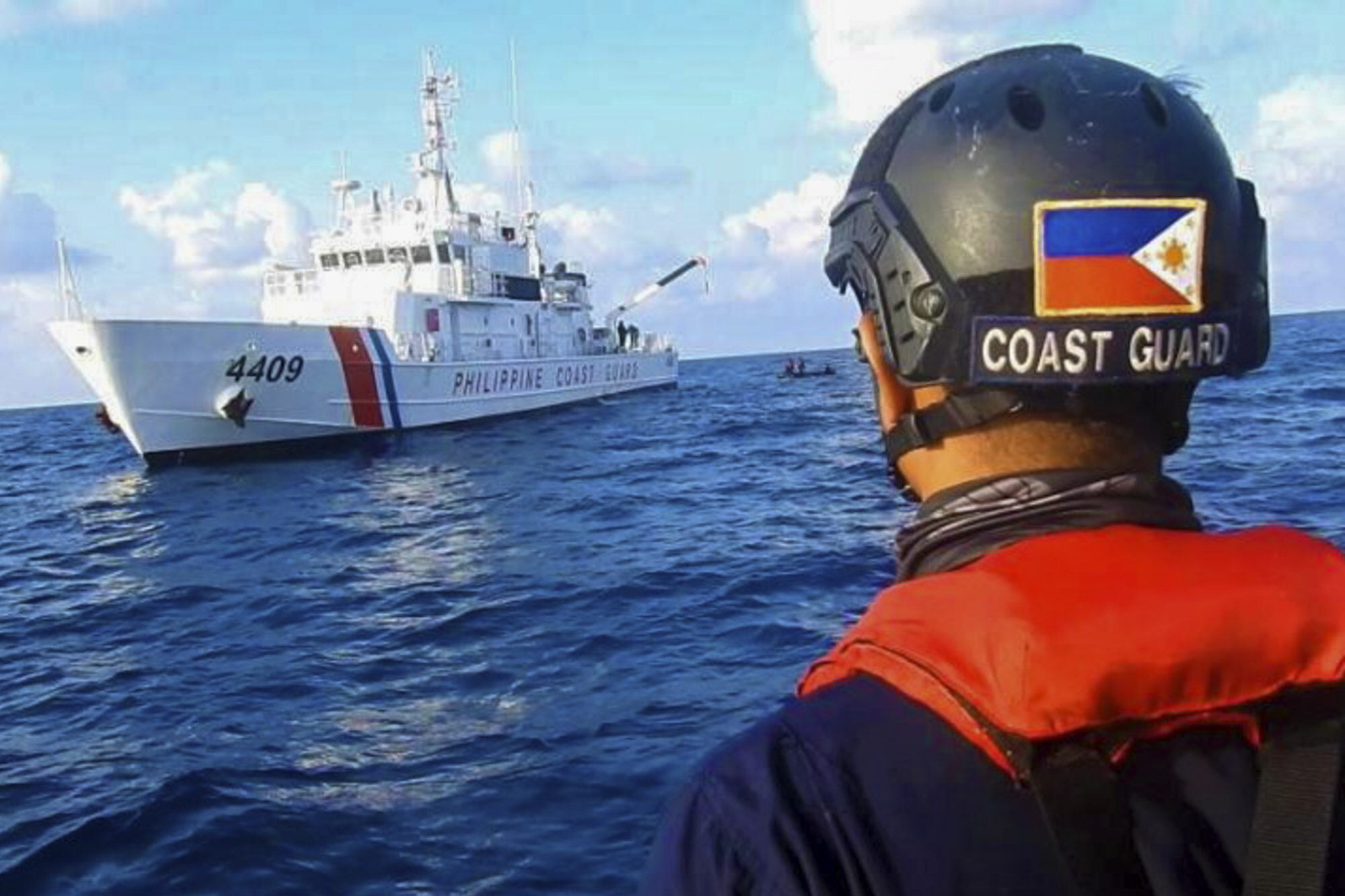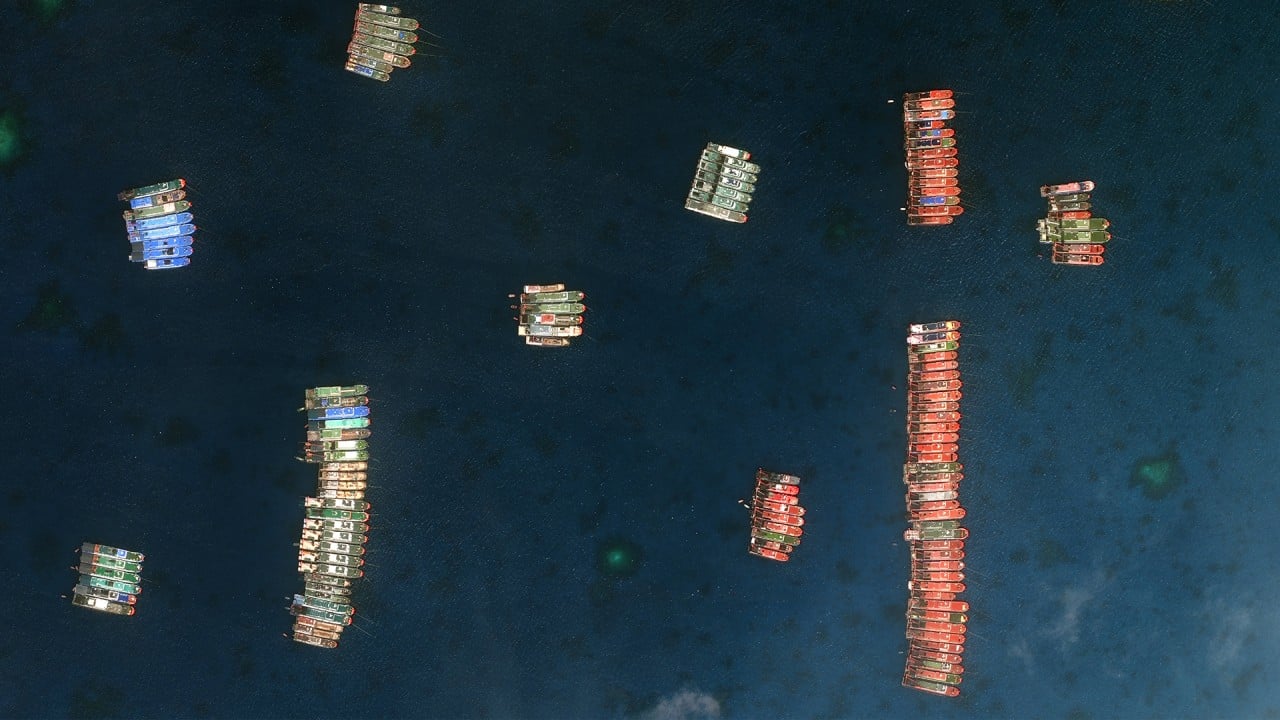
‘It will be bloody’: Philippines’ Duterte threatens to ‘stake a claim’ over South China Sea energy resources using military ships
- The president said he’s ‘not so much interested’ in fishing and the disputed waterway’s marine resources
- But he warned in a late night televised address that he would send naval ships to the contested waters if China begins to drill for oil
“I’m not so much interested now in fishing. I don’t think there’s enough fish to quarrel about,” he said, adding that in future disputes over marine resources he would send “five coastguard ships, and they can chase … They can play with each other, and see who’s faster”.
“But when we start to mine, when we start to get whatever it is in the bowels of the China Sea, our oil, by that time I will send my grey ships there to stake a claim,” he said, referring to Philippine naval ships.
“If they start drilling oil there, I will tell China, is that part of our agreement? If that is not part of our agreement, I will also drill oil there,” he said. “If they get the oil, that would be time that we should act on it.”
Philippine defence officials deny threat to withdraw support from Duterte
Philippine defence chief Delfin Lorenzana told Duterte during the meeting that naval ships can patrol the country’s exclusive economic zone, after the president said that “nothing will happen” if the nation sends its ships “because we are not in the possession of the sea”.

Whitsun Reef row: could Manila lose another South China Sea feature to Beijing?
The Chinese embassy in Manila did not immediately respond to a request for comment.
Manila last year lifted a ban on South China Sea oil exploration, paving the way for advancing talks with China, even as the nations still have to navigate their overlapping claims in the area.

